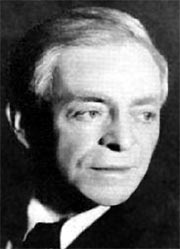Orthomolecular Medicine Hall of Fame
Inducted 2010Casimir Funk is remembered as an outstanding biochemist and early explorer in the field of nutritional science, who is best known for the first formulation of the concept of vitamins in 1912. It was Funk who coined the term “vitamin,” to describe compounds that were “vital” to health and were centred around an “amine” group. He also postulated the existence of vitamins B1, B2, C and D. In 1936, he determined the molecular structure of thiamin, and was the first to isolate niacin, vitamin B3. He discovered that many human diseases are caused by a lack of particular nutrients that are readily available in certain foods. He found cures for such devastating illnesses as beriberi, pellagra, rickets, and scurvy. Funk later did extensive research on hormones.
Born in Warsaw, Poland, the son of a renowned dermatologist, Casimir Funk studied organic chemistry at Switzerland’s University of Berne, from which he received his Ph.D. in 1904. Funk worked at the Pasteur Institute in Paris until 1906, and then at London’s Lister Institute of Preventative Medicine. It was at the Lister institute that Funk’s career as a scientist truly began. He was assigned to research beriberi, a common illness in the Far East that causes peripheral nerve damage and heart failure. Scientists had thought the disease was due to insufficient dietary protein, but Funk discovered that the typical Far Eastern diet of polished rice was deficient in thiamine. Adding this vitamin back into the diet cured beriberi. Later that year, he isolated a substance now known as niacin (vitamin B3). When he published his findings in 1912 and his book The Vitamin, in 1913, Funk immediately became well known in the scientific world.
The publication of “The Vitamin” earned him public recognition and a Beit Fellowship from the University of London. He become head of the Biochemistry Department at the Cancer Hospital Research Institute and later became head of research at H. A. Metz and Company, where he remained until 1921. While at Metz, Funk developed Oscodol (a vitamin A and D concentrate). He began a job in New York as a consulting scientist for the U.S. Vitamin Corporation, and in 1940 he became president of the Funk Foundation for Medical Research.
During his lifetime, Funk published more than 140 articles, advanced humankind’s understanding of nutrition and revolutionized the way people looked at their health. His original insight that lack of vitamins in the diet was responsible for disease helped develop effective preventive and curative measures for anemia, beriberi, osteomalacia, pellagra, rickets, scurvy, and sprue. The Polish Institute of Arts and Sciences of America (PIASA) annually honors Polish-American scientists with the Casimir Funk Natural Sciences Award.



